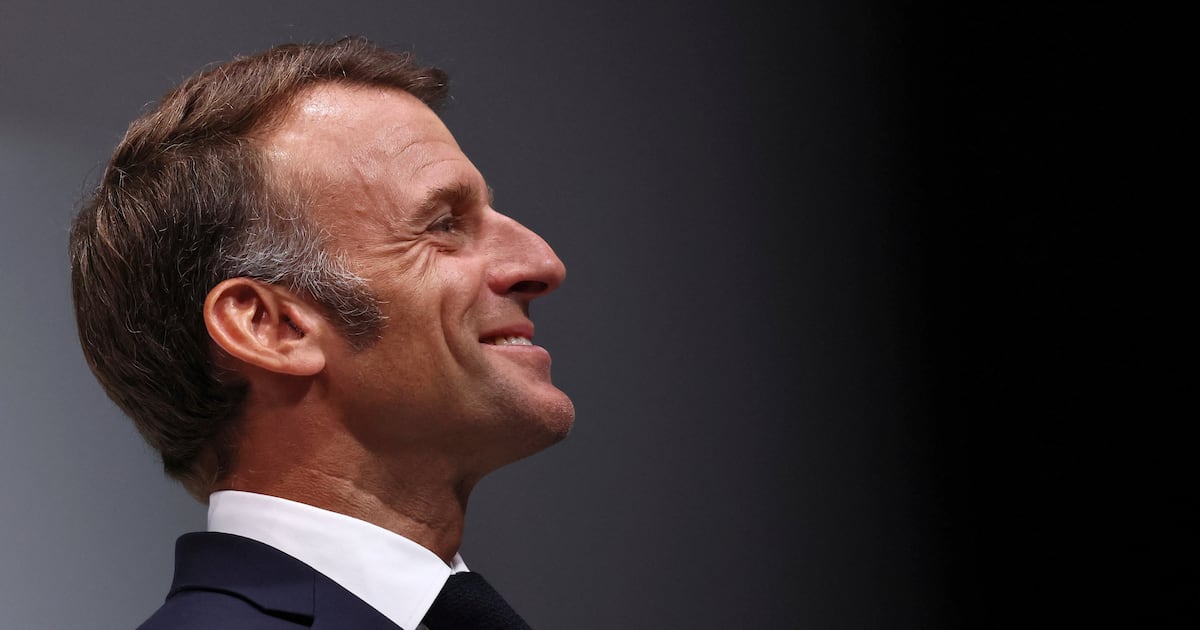Business
France Faces Political Turmoil as Debt Crisis Escalates

France is grappling with a deepening political and financial crisis as the national debt surges to approximately €3.3 trillion. This situation has sparked widespread unrest, leading to protests against proposed austerity measures. The political landscape has shifted dramatically since 2007, when François Bayrou, a centrist politician, first warned of the dangers posed by mounting debt. His recent return to the political forefront as Prime Minister under Emmanuel Macron highlights the urgency of addressing France’s fiscal challenges.
During a press conference at a prestigious hotel in Paris, Bayrou emphasized the need for honesty in confronting the nation’s debt. He stated, “Debt is our enemy… our first weapon to fight the debt is to tell the truth to the French people.” At that time, the national debt was approximately €1.2 trillion, with an annual deficit of €45 billion. In stark contrast, the current deficit stands at €168.6 billion, representing a staggering 5.8 percent of France’s gross domestic product (GDP).
In a recent confidence vote, Bayrou’s proposed budget, aimed at curbing this deficit, faced fierce opposition in a divided parliament, ultimately leading to his ousting. The chaotic political environment has seen a rotation of leaders, with Sébastien Lecornu becoming the fifth prime minister appointed by Macron in just two years. Lecornu, who previously served as the defence minister, now grapples with the same budgetary issues that led to the downfall of his predecessors.
The political turmoil intensified after Macron called for early elections in 2024, a move that backfired and resulted in a fragmented parliament. This division has stymied efforts to form a stable government, making it difficult to implement necessary reforms. While French officials assert that the economy is still growing, albeit slowly, market reactions tell a different story. France’s borrowing costs have risen sharply, surpassing those of Italy and Greece, as investors react to political instability.
According to Pierre Moscovici, head of France’s fiscal watchdog, debt repayments are projected to escalate from €25 billion in 2021 to an alarming €63 billion in 2025. This figure could exceed €100 billion by 2029, potentially becoming France’s largest budgetary expense. The pressures from rising debt repayments are compounded by an ageing population and a pensions system that is projected to face increasing deficits in the coming decades.
The French government allocates approximately €400 billion annually to pensions, which constitutes 14 percent of its GDP. This figure is anticipated to rise by €50 billion per decade. Despite efforts to reform the retirement age from 60 to 64, public resistance remains strong, complicating any further attempts at fiscal reform.
In addition to pension costs, France’s extensive subsidies to domestic industries contribute significantly to the financial strain. A recent inquiry revealed that the government supports around 2,200 subsidy schemes, costing approximately €211 billion annually. This spending raises questions about efficiency and accountability, particularly in light of controversies surrounding companies like Michelin, which has faced scrutiny for receiving public funding while laying off workers.
The European Commission has placed France under an “excessive deficit procedure,” signaling that the country must undergo close monitoring and face potential fines if it fails to meet budgetary targets. This comes after years of overspending, exacerbated by tax cuts and pandemic relief measures. The French deficit, having risen to 5.8 percent in 2024, illustrates the urgency of addressing the nation’s fiscal challenges.
Bayrou’s recent budget proposal aimed to reduce the deficit by €43.8 billion by 2026, but the plan faced immediate backlash. Key measures included freezing pensions and welfare payments, alongside calls for a “solidarity contribution” from wealthier citizens. The proposal also suggested eliminating two public holidays to boost economic activity, a move that was likely intended to negotiate concessions rather than serve as a serious policy initiative.
Despite these efforts, the likelihood of passing an effective budget remains uncertain. Negotiations are expected to involve concessions to appease the Socialist Party, which has advocated for a tax on the wealthy, contradicting Macron’s previous approach of easing the tax burden to stimulate growth. The far-right National Rally party, led by Marine Le Pen, sees the current crisis as an opportunity to push for radical change.
Looking ahead, the potential for economic instability raises concerns not only for France but also for the broader eurozone. Unlike during previous crises, the European Central Bank (ECB) is better positioned as a lender of last resort. Nevertheless, any assistance would require France to undertake significant austerity measures—an idea that faces considerable resistance within the current political climate.
As France navigates this turbulent period, the outcome of ongoing negotiations and the broader implications for the European economic landscape remain critical points of focus. The situation underscores the delicate balance between necessary fiscal reforms and the political realities of a divided parliament.
-

 Top Stories2 months ago
Top Stories2 months agoTributes Surge for 9-Year-Old Leon Briody After Cancer Battle
-

 Entertainment3 months ago
Entertainment3 months agoAimee Osbourne Joins Family for Emotional Tribute to Ozzy
-

 Politics3 months ago
Politics3 months agoDanny Healy-Rae Considers Complaint After Altercation with Garda
-

 Top Stories3 months ago
Top Stories3 months agoIreland Enjoys Summer Heat as Hurricane Erin Approaches Atlantic
-

 World4 months ago
World4 months agoHawaii Commemorates 80 Years Since Hiroshima Bombing with Ceremony
-

 Top Stories2 months ago
Top Stories2 months agoNewcastle West Woman Patricia Foley Found Safe After Urgent Search
-

 Top Stories4 months ago
Top Stories4 months agoFianna Fáil TDs Urgently Consider Maire Geoghegan-Quinn for Presidency
-

 World4 months ago
World4 months agoGaza Aid Distribution Tragedy: 20 Killed Amid Ongoing Violence
-

 World4 months ago
World4 months agoCouple Convicted of Murdering Two-Year-Old Grandson in Wales
-

 World4 months ago
World4 months agoAristocrat Constance Marten and Partner Convicted of Infant Murder
-

 Top Stories3 months ago
Top Stories3 months agoClimbing Errigal: A Must-Do Summer Adventure in Donegal
-

 Top Stories3 months ago
Top Stories3 months agoHike Donegal’s Errigal Mountain NOW for Unforgettable Summer Views









